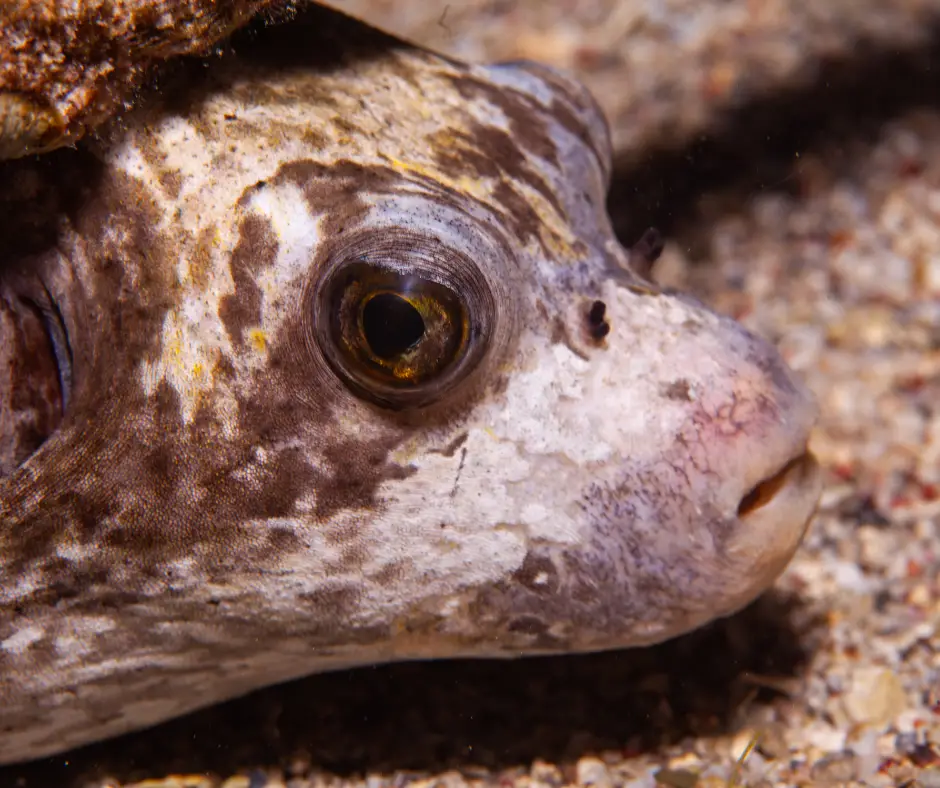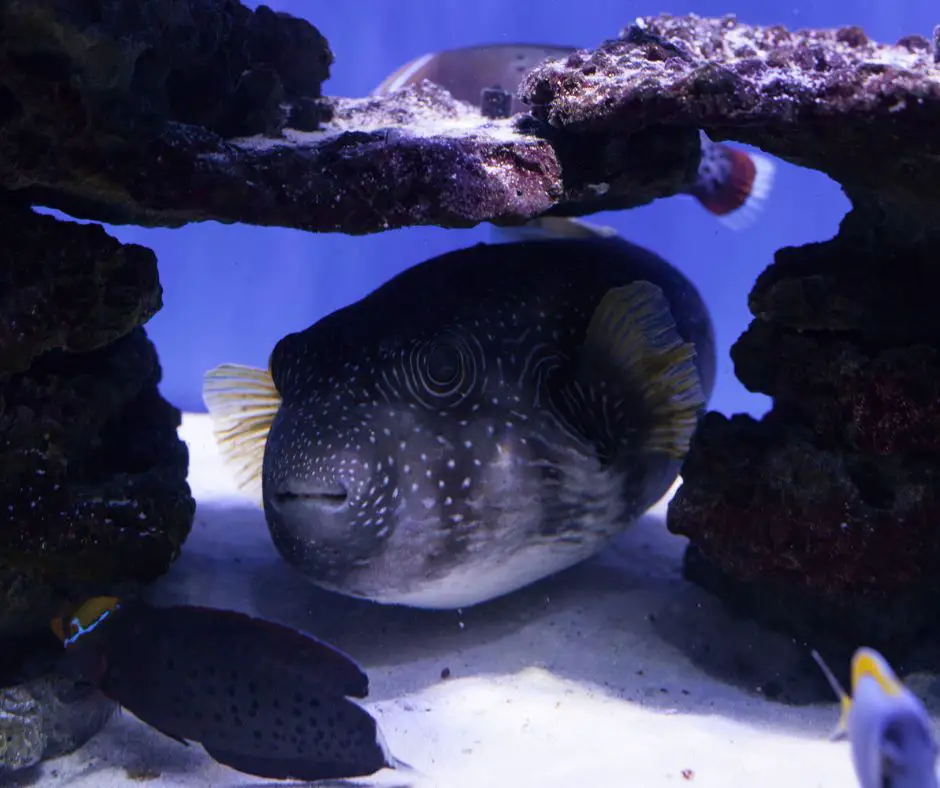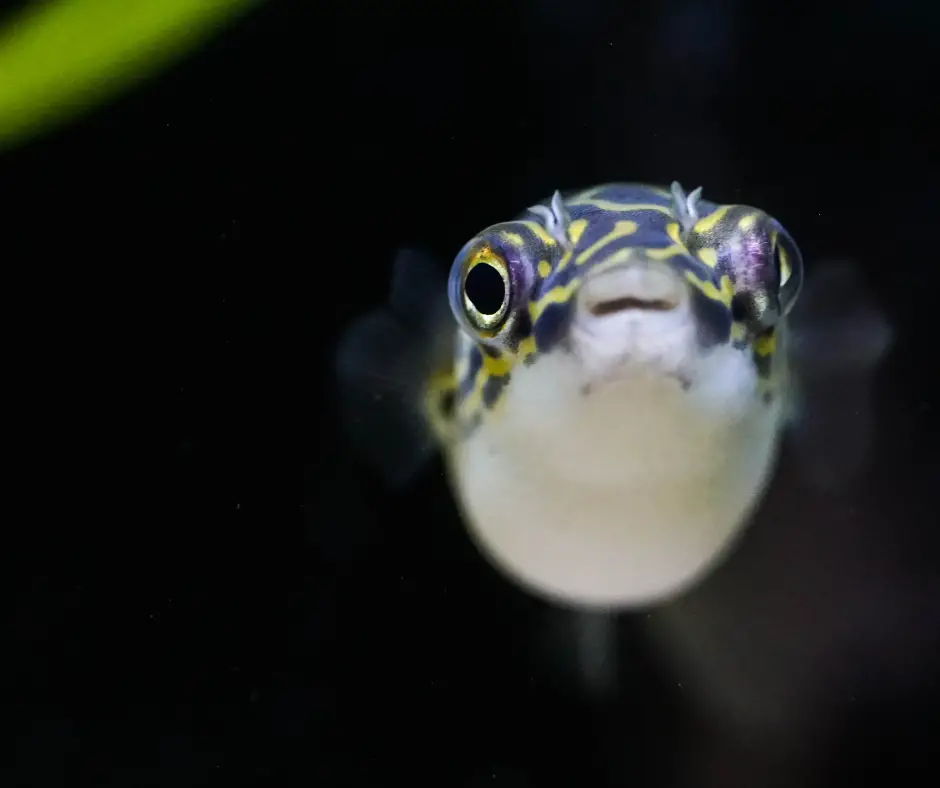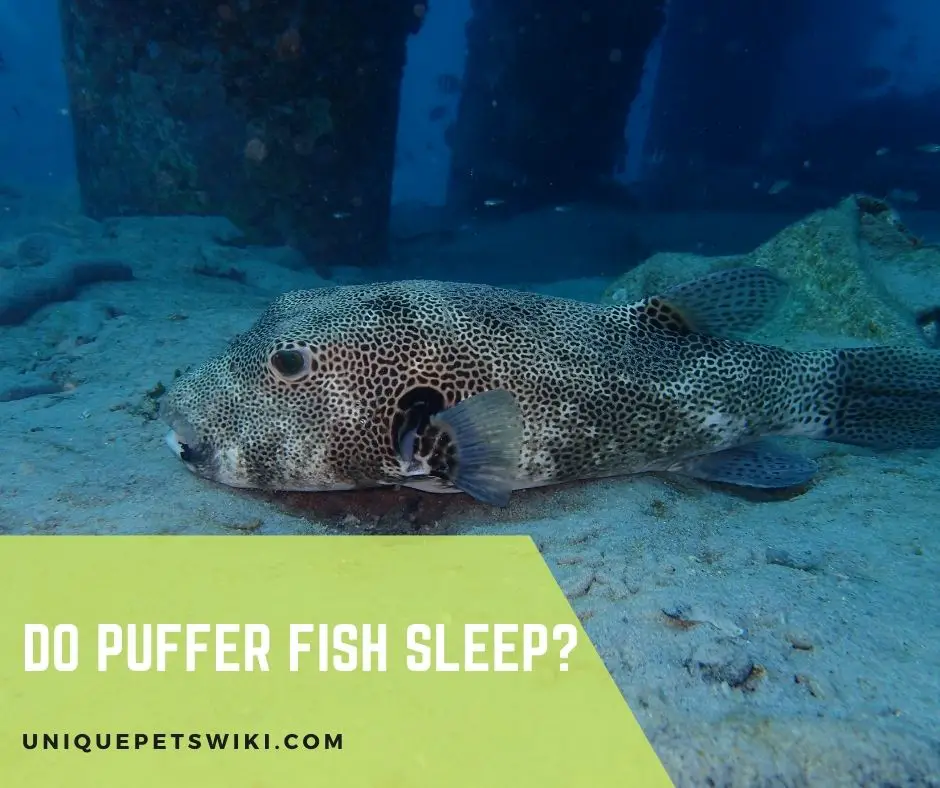Current and future owners of puffers research different topics concerning their pets, as this enables them to provide the best care possible to their fish. Key amongst these areas of research include whether or not puffer fish sleep.
This article explores puffer fish sleep patterns and tendencies, as well as anomalies to look out for when they rest.
You will be able to tell what entails normal sleep patterns in a puffer, and what not to do when your beloved pets are having a rest.
Contents
Do Puffer Fish Sleep?
Yes, puffer fish do sleep. In actual sense, fish don’t sleep like most animals, rather, they rest and slow their movements to conserve energy.
In spite of this phenomenon, it is important to allow them to rest and rejuvenate their bodies as much as possible.
Like most fish, your puffer will likely sleep with its eyes open, and in an upright position. Sometimes they will sleep near the surface of the tank, but in most instances, they like to settle towards the bottom.

How to Know If Puffer Fish is Sleeping
Reduced activity is one obvious sign that your puffer is sleeping, and it will likely settle in an upright position to do this. While they may sleep anywhere, they are more likely to settle near the bottom or close to the hides in the tank.
Additionally, they are unlikely to respond to stimuli when sleeping, and their gills will move slowly in this state of rest. In particular, many owners notice that puffer fish often curl their tail when sleeping. It’s like a defensive stance.
Sleeping Habits of Puffer Fish
Puffer fish have some unique sleep tendencies. As already alluded to, they will settle down for some much-needed rest at the bottom of the tank, on a leaf, or atop the rocks in the tank.
Alternatively, they may also settle down in a nice hide-out by a rock, lay still, and get their rest.
Sometimes, puffers will dig a hole in the gravel at the bottom of the tank and lie in it. These holes mimic the trenches which ordinarily provide them a place for comfort and rest in the wild.
In terms of the duration over which they sleep, there is no set standard. Puffers may sleep for a few minutes or longer, usually depending on the conditions in the tank.
To get an idea as to the length of sleep sufficient for your puffer, you may set a clock to monitor them. Their sleep durations can be compared to daydreams that humans experience from time to time.
Moreover, puffers can sleep at any time, both during the day and at night. They tend to sleep with their eyes open regardless of the time.
In most cases, puffers prefer to swim more during the day, and then rest at the bottom of the tank at night.
In terms of their preferred sleeping positions, this varies from puffer to puffer.
Many prefer to sleep at the bottom of their tanks, while others will sleep closer to the surface. If there are hides within the tank, some puffers prefer to sleep near or in them.
Their sleeping habits are notably different from those of tuna and sharks. While the latter don’t sleep because they need to move around to keep breathing, puffer fish can slow down and relax.

Puffer Fish Sleep and Related Concerns
Your puffer fish’s sleep is best uninterrupted. If you spot it resting at the bottom of the tank, there really is nothing to worry about and it is advisable to allow it to rest.
This sleep allows it to recuperate and helps keep your puffer healthy.
Nevertheless, there are a number of occurences that may point to a potential problem faced by your fish.
Thus, it is generally important to keep an eye on your puffers to immediately detect any anomalies in their sleeping habits.
Puffer Fish Sleeping on Side
The upright sleeping position is the most common for many fish species, and puffers prefer it as well.
If you notice your puffer sleeping on its side, you have a valid reason for concern. In some instances, sick puffers and those on the verge of death sleep on their side.
You may prompt them to wake up by shining a bright light or adding a little water into the tank and observing their reactions.
Puffer Fish Not Sleep
A key point of concern may also be a puffer fish that appears not to sleep at all. This is a rare occurrence and may probably just be a result of short naps which you fail to notice.
If your puffers mostly sleep at night, it may be a little less likely that you will catch them in the act.

Puffer Fish Sleep Too Much
Overfeeding may cause too much sleep in a puffer fish, and this may also affect the water balance when it excretes. Hence, it is important to strictly regulate the quantity of food available to it.
The fish might also be lethargic from an unhealthy water environment and become sluggish. Hence, checking the pH, ammonia, and nitrite levels is crucial in protecting your puffers from more stress.
Finally, oversleeping may also result from ill health, and this is often accompanied by pale coloring. When awake, you may notice the puffer having slower movements or darting around abnormally.
This calls for speedy interventions to help it de-stress, and this may include doing a partial water change.
AQUANATURAL Oolitic Aragonite 10lb
- Unsurpassed buffering capability - keeps pH at a stable 8.2
- 98% pure calcium carbonate - no impurities like other sands
- Naturally renewable oolitic aragonite from a sustainable source
- Pisces is the only company that has a lease with The Bahamian government to harvest aragonite
Last update on 2022-12-29 / Affiliate links / Images from Amazon Product Advertising API
Conclusion
While they will likely not close their eyes when resting, puffer fish do actually sleep. Based on their anatomies as fish, they have undeveloped eyelids which may not really close when they are down for a nap.
Nevertheless, puffer fish also need to rejuvenate their energies and rest, hence they require to sleep like most other organisms.
It is important to allow them to rest without disturbance and to observe them keenly to understand their mannerisms.
This is crucial in detecting ill health or stressful environments, which allows for timely interventions before things get out of hand.

